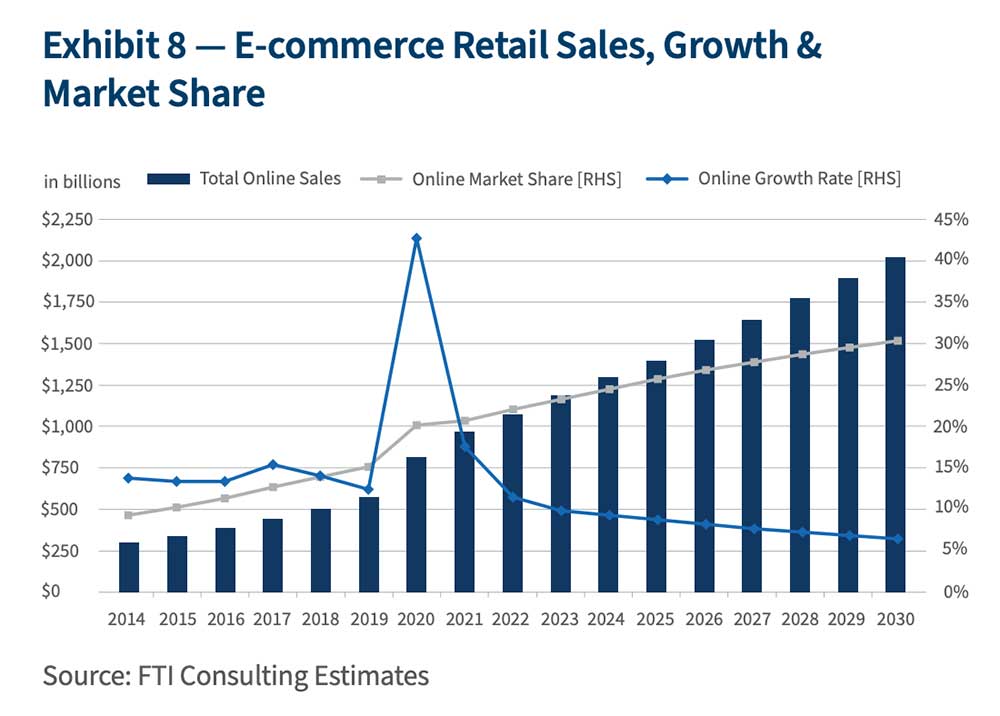Ecommerce Scalability Strategies for Global Markets: A Comprehensive Guide
Embark on a journey through the realm of Ecommerce Scalability Strategies for Global Markets, where the intricate dance of technology, localization, and supply chain optimization unfolds to shape the success of businesses worldwide. This guide promises to unravel the complexities and nuances of expanding Ecommerce ventures on a global scale, offering invaluable insights and strategies for sustainable growth in diverse markets.
Understanding Ecommerce Scalability
Ecommerce scalability refers to the ability of an online business to grow and adapt to increased demands and changes in the market. When it comes to global markets, scalability becomes even more crucial for Ecommerce businesses looking to expand their reach and cater to a diverse customer base.
Importance of Scalability in Global Markets
Scalability is essential for Ecommerce businesses operating in global markets as it allows them to efficiently handle growth, increase their market share, and meet the demands of customers from different regions. Without scalability, businesses may struggle to keep up with the rapid changes and requirements of international markets, leading to missed opportunities and loss of competitiveness.
Challenges in Scaling for Global Markets
- Localization: Adapting products, services, and content to suit the cultural preferences and languages of various regions can be a complex and time-consuming process.
- Logistics and Shipping: Managing logistics, shipping, and supply chain operations across borders can pose challenges in terms of costs, regulations, and delivery times.
- Payment Processing: Offering secure and convenient payment options that are widely accepted in different countries can be a hurdle for Ecommerce businesses expanding globally.
- Competition: Facing competition from local and international Ecommerce players in each market segment can make it challenging for businesses to establish a strong foothold.
- Regulatory Compliance: Navigating the legal and regulatory landscape of multiple countries while ensuring compliance with data protection and consumer rights laws adds another layer of complexity.
Technology Solutions for Scalability

In the fast-paced world of Ecommerce, having the right technology solutions in place is crucial for ensuring scalability, especially when expanding into global markets. Let's explore some key tools and platforms that can aid in this process.
Cloud-Based Solutions vs On-Premise Infrastructure
When it comes to Ecommerce scalability, the choice between cloud-based solutions and on-premise infrastructure can have a significant impact. Cloud-based solutions offer flexibility, scalability, and cost-effectiveness, making them ideal for businesses looking to expand globally. On the other hand, on-premise infrastructure provides greater control and security but may require more resources to scale effectively.
It's essential to weigh the pros and cons of each option based on your specific business needs and goals.
Role of AI and Machine Learning
AI and machine learning technologies play a crucial role in optimizing Ecommerce operations for global expansion. These technologies can help automate processes, personalize customer experiences, and analyze data to make informed decisions. By leveraging AI and machine learning tools, businesses can improve efficiency, reduce costs, and enhance the overall scalability of their Ecommerce operations.
Localization and Personalization Strategies
Localization and personalization are crucial strategies in Ecommerce for global markets. By tailoring the shopping experience to meet the unique preferences and cultural norms of diverse international audiences, businesses can significantly enhance customer engagement, drive sales, and build brand loyalty.
Importance of Localization in Ecommerce
Localization involves adapting the content, language, currency, payment methods, and even product offerings to suit the specific needs of different regions. This strategy is essential as it helps businesses establish a connection with customers on a local level, making them feel understood and valued.
For example, providing product descriptions in the local language, displaying prices in the local currency, and offering region-specific promotions can all contribute to a more personalized and engaging shopping experience.
Successful Ecommerce Personalization Strategies
- Amazon: Amazon's recommendation engine analyzes customer behavior and purchase history to provide personalized product recommendations. This approach enhances the shopping experience by offering relevant suggestions based on individual preferences.
- Netflix: Netflix utilizes personalization algorithms to recommend movies and TV shows based on viewing history and user preferences. This tailored content delivery keeps customers engaged and increases user satisfaction.
- Sephora: Sephora's Beauty Insider program offers personalized product recommendations, exclusive offers, and customized beauty tips based on customer preferences and purchase history. This personalization strategy not only drives sales but also fosters customer loyalty.
Enhancing Customer Experience and Driving Sales
Localization and personalization play a crucial role in enhancing customer experience and driving sales in different regions. By catering to the unique needs and preferences of diverse international audiences, businesses can create a more personalized and engaging shopping experience. This, in turn, leads to increased customer satisfaction, higher conversion rates, and ultimately, improved sales performance.
Supply Chain and Logistics Optimization
Optimizing the supply chain and logistics is crucial for Ecommerce scalability in global markets. Efficient management of inventory, shipping, and delivery processes can enhance customer satisfaction, reduce costs, and improve overall business performance.
Challenges of Managing Inventory, Shipping, and Delivery Across Borders
Managing inventory, shipping, and delivery across borders poses several challenges for international Ecommerce businesses
- Customs and regulations: Navigating different customs requirements and regulations in various countries can lead to delays and increased costs.
- Transportation costs: Shipping goods across borders can be expensive, especially when dealing with long distances and multiple transportation modes.
- Inventory management: Balancing inventory levels to meet demand in different markets while minimizing holding costs can be complex.
- Reverse logistics: Handling returns and exchanges from global customers requires efficient processes to maintain customer satisfaction.
Examples of Innovative Supply Chain Solutions
Innovative supply chain solutions have emerged to address these challenges and optimize operations for international Ecommerce businesses. Some examples include:
- Blockchain technology: Utilizing blockchain for transparent and secure tracking of goods throughout the supply chain, reducing fraud and improving traceability.
- Cross-border warehouses: Establishing warehouses in strategic locations to reduce shipping times and costs, enabling faster delivery to customers in different regions.
- AI-powered demand forecasting: Implementing artificial intelligence to analyze data and predict customer demand, allowing for better inventory management and reduced stockouts.
- Last-mile delivery optimization: Leveraging technology to optimize last-mile delivery routes, reduce delivery times, and improve customer satisfaction.
Payment and Currency Considerations

In the realm of global Ecommerce, payment and currency considerations play a vital role in ensuring smooth transactions and customer satisfaction. Offering diverse payment options and managing currency fluctuations are key factors in the success of Ecommerce businesses operating on an international scale.
Importance of Diverse Payment Options
- Providing a variety of payment methods such as credit/debit cards, digital wallets, bank transfers, and local payment options can cater to the preferences of customers worldwide.
- By offering diverse payment options, Ecommerce businesses can attract a wider customer base and increase conversion rates.
- Adapting to the payment preferences of different regions can enhance the overall shopping experience and build trust with customers.
Impact of Currency Fluctuations
- Currency fluctuations can directly impact the pricing of products and services in different countries, affecting profit margins and competitiveness.
- Ecommerce businesses need to monitor exchange rates and adjust pricing strategies accordingly to mitigate the impact of currency fluctuations.
- Implementing dynamic pricing strategies and offering currency conversion options can help in managing the effects of fluctuating exchange rates.
Secure Payment Gateways and Fraud Prevention
- Utilizing secure payment gateways that comply with industry standards and regulations is essential for protecting customer data and preventing fraud.
- Implementing multi-layered security measures such as encryption, tokenization, and two-factor authentication can enhance the security of international Ecommerce transactions.
- Regularly monitoring transactions for suspicious activities and implementing fraud prevention tools can safeguard Ecommerce businesses from potential financial losses.
Final Review
As we draw the curtains on our exploration of Ecommerce Scalability Strategies for Global Markets, it becomes evident that the pillars of technology, localization, and logistics form the foundation for thriving in the dynamic landscape of international Ecommerce. Armed with these insights, businesses can navigate challenges, seize opportunities, and pave the way for unparalleled success in the global marketplace.
Popular Questions
How important is scalability for Ecommerce businesses in global markets?
Scalability is crucial as it allows businesses to adapt to growing demands, enter new markets seamlessly, and handle increased traffic efficiently.
What role does AI play in optimizing Ecommerce operations for global expansion?
AI enhances decision-making processes, automates tasks, personalizes customer experiences, and improves operational efficiency, all of which are vital for global expansion.
Why is localization essential for Ecommerce success in diverse international markets?
Localization tailors the shopping experience to cultural preferences, language nuances, and regional regulations, fostering customer trust and driving engagement.
How do currency fluctuations impact Ecommerce businesses operating in multiple countries?
Currency fluctuations can affect pricing, profit margins, and customer purchasing power, necessitating strategies like dynamic pricing and hedging to mitigate risks.
What are some innovative supply chain solutions that benefit international Ecommerce businesses?
Technologies like blockchain, RFID tracking, and automated inventory management systems streamline operations, reduce costs, and enhance transparency across global supply chains.